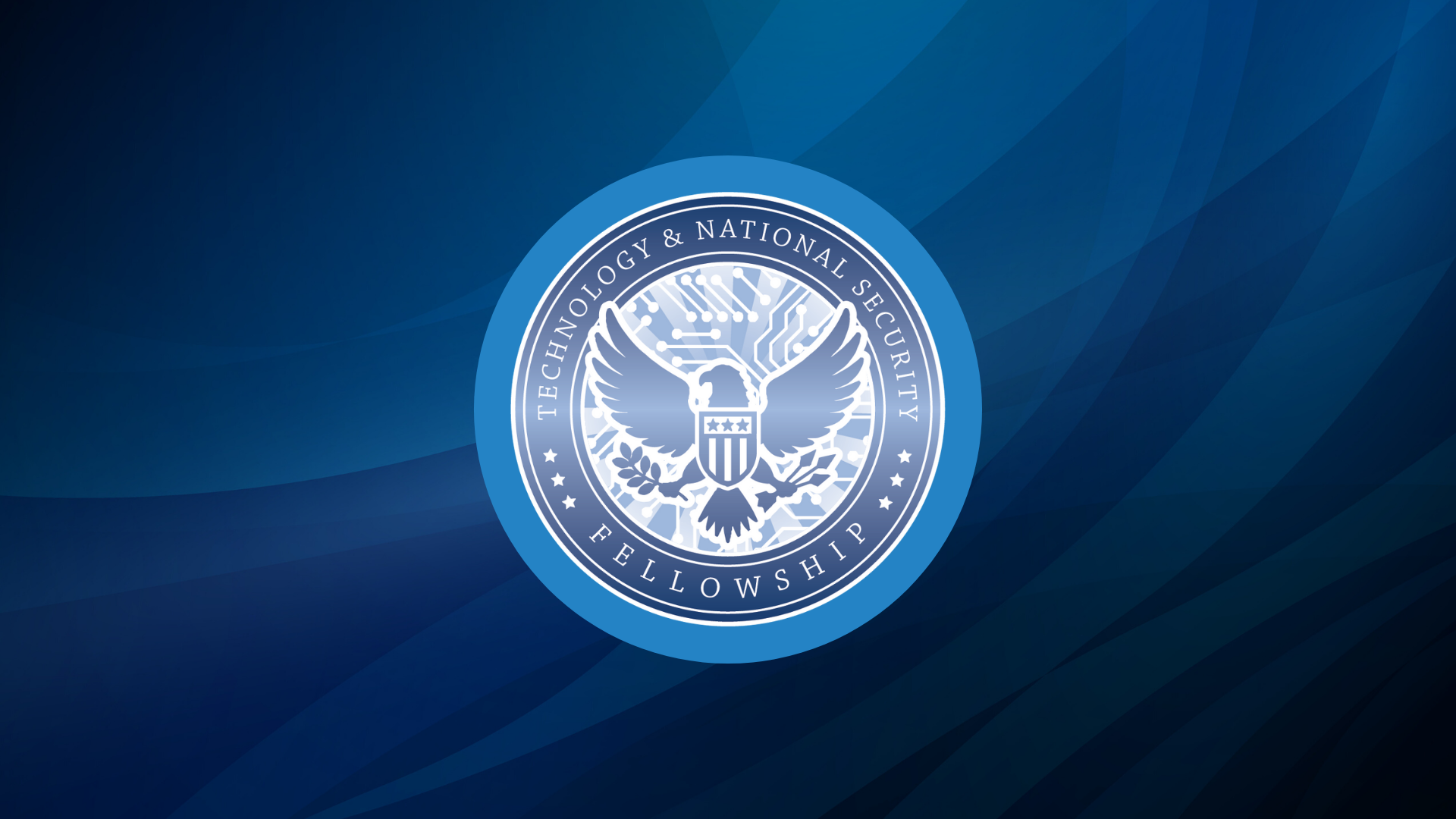New NSIN fellowship has resulted in the appointment of six fellows to one-year, national security positions.
For Immediate Release
October 1, 2020
WASHINGTON, D.C.- A new fellowship program designed by the National Security Innovation Network (NSIN) to connect top tech talent with key policymakers in the U.S. Department of Defense (DoD) and Congress has resulted in the appointment of six fellows to one-year, national security positions.
NSIN, a program office within the DoD, has announced that six early- and mid-career technologists in its inaugural Technology and National Security Fellowship (TNSF) will work in positions at key DoD and Congressional offices. The TNSF allows technologists and entrepreneurs to serve their country by embedding with key decision-makers at the top levels of the U.S. Government to provide advice and emerging expertise for issues at the critical intersection of national security and technology.
Host offices for TNSF Fellows include:
- Joint Artificial Intelligence Center (JAIC): The JAIC leads the artificial intelligence strategy for the DoD. In addition, the JAIC leads two national mission initiatives: one focused on humanitarian assistance and disaster relief, and the second focused on predictive maintenance.
- Laboratory for Physical Sciences (LPS): The Laboratory for Physical Sciences focuses on advanced communication and computer technologies in conjunction with university researchers.
- Army Futures Command, Commander’s Action Group (AFC/CAG): The CAG provides strategic technologies and futures analysis to the Commander of AFC.
- Office of Representative Tim Ryan: Representative Tim Ryan represents the 13th Congressional District of Ohio and serves on the Defense Subcommittee of the House Appropriations Committee, and is the Co-Chairman of the Military Mental Health Task Force.
- Assistant Secretary of the Army, Acquisitions, Technology, & Logistics: Office of the Chief Technology Officer (ASA/ALT): The Office of the Assistant Secretary of the Army for Acquisition, Logistics and Technology’s mission is to provide a decisive advantage to Soldiers through the development, acquisition, fielding, and sustainment of technologies and capabilities.
- Assistant Secretary of the Air Force, Energy, Installations, & Environment (SAF/IE): SAF/IE is responsible for the strategic basing initiatives and installations, energy demands, and environmental impacts and safety processes for the Department of the Air Force, also focusing on long-term sustainability.
“The foundational concept behind this fellowship was to channel technical talent in the academic and venture communities to policymakers who require such talent to help make informed decisions that impact our national security,” said Morgan Plummer, NSIN Managing Director. “This inaugural class of TNSF Fellows also demonstrates the strength of the program, as they have set the bar high for future fellows.”
The inaugural class of TNSF Fellows includes:
- Chris Painter (Joint Artificial Intelligence Center) holds a master’s degree from the University of Pennsylvania in the Jerome Fisher Program in Management and Technology, specializing in Robots, Economics, and Mechanical Engineering. Chris has worked as Machine Learning Research Engineer at 4Catalyzer where he focused on the intersection of artificial intelligence and healthcare.
- Dr. Anna Melker (Laboratory for Physical Sciences) graduated magna cum laude from Bryn Mawr College, where she was a Fulbright scholar, and earned a Ph.D. in Materials and Polymer Chemistry from the University of California, Santa Barbara. She is also the founder and CEO of SPIT Lab AB, a digital health company that harnesses artificial intelligence to help infertility.
- Dr. Jenn Robinson (Army Futures Command) earned a doctorate degree in Physics and a master’s degree from the University of Maryland. She also holds a Bachelor of Arts from Cornell. Jenn has worked as a Postdoctoral Researcher at the National Security Agency and as a fellow alongside the Army Research Lab at Adelphi, Md.
- Naren Chaudry (Representative Tim Ryan) holds a Master of Science in Biomedical Engineering from Duke and a bachelor’s degree in Biomedical Engineering from the University of Wisconsin. He has entrepreneurial experience working for Techstars Chicago as a business development associate, as well as serving as a research assistant at the Mayo Clinic.
- Jorge Narvaez (Assistant Secretary of the Army, Chief Technology Officer) is a doctoral candidate in Energy Science and Engineering at the University of Tennessee. He holds a master’s in Nuclear Engineering and Engineering Physics from the University of Wisconsin. Jorge previously worked as a research associate in the White House Office of Science and Technology Policy and as an NSIN X-Force Fellow working on COVID-19 contact tracing and proximity detection.
- Justin Vasel (Assistant Secretary of the Air Force, Energy, Installations, & Environment) is a doctoral candidate in Physics at Indiana University. Additionally, he holds master’s and bachelor’s degrees in Physics from the University of Minnesota Duluth and the University of Wisconsin - Eau Claire, respectively.
“The caliber of these appointees speaks to their levels of talent and ability to immediately contribute to the decisions made in these DoD and Congressional offices,” Plummer said.
Application for the NSIN TNSF is available to individuals holding either an undergraduate or graduate degree in a STEM-related field. Top applicants must have demonstrated technical or entrepreneurial experience or expertise and at least two years of prior work experience. Participants must be U.S. Citizens. NSIN will conduct the TNSF annually.
ABOUT NSIN
The NSIN mission is to “build networks of innovators that generate new solutions to national security problems.” NSIN is headquartered in Arlington, VA, and has regional offices in 11 commercial innovation hubs throughout the United States. Through its headquarters, regional hubs, and embedded university partnerships, NSIN builds a national network of innovators and delivers programming that solves real-world, DoD problems through collaborative partnerships with non-traditional problem-solvers within the academic and early-stage venture communities.
